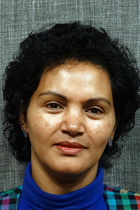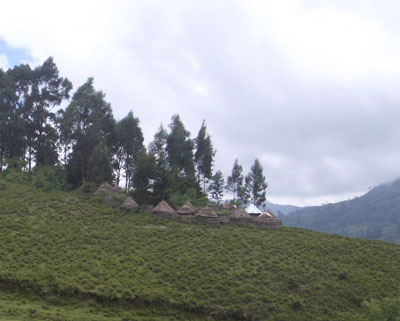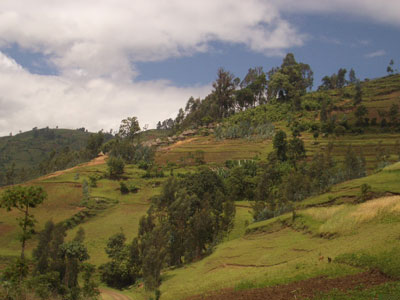New research project documenting Zargulla, an endangered Omotic language in Ethiopia

ASCL senior researcher Azeb Amha has started a new research project entitled Placing the Dead and Nurturing the Living: Documentation of house construction and terrace farming in Zargulla, an endangered Omotic language.
The Zargulla (self-name ‘Gamo’) people live in parts of the Southern Ethiopian Highlands, in the Bonke District of the ‘Southern Nations, Nationalities and Peoples’ Regional State’ of Ethiopia. The project on this East-Ometo speaking group of approximately 8000 people (cf. the 1994 national census) examines the interactions of language, culture and environment through a study of house construction and landscape architecture.
Background

Residential house in Kettele, Zargulla 2005. © Azeb Amha
Some Zargulla villages are characterized by tiny houses (boosa) and terrace farms (keéla) or sacred forest in the higher parts of valleys and family-residential areas and garden cultivation in foothills. The small structures (boosa) are commemorative houses built over graves and they are replicas of houses in which people live (see photos). The project will produce linguistic and ethnographic documentation of cultural practices related to constructing, farming and dwelling patterns. The findings will be important records of part of the interesting but vanishing cultural heritage of the Zargulla people, whose way of life is changing due to economic and socio-cultural transformations. It will help to understand the embedded logic of spatial-environmental use and spatial expressions and cognition in Zargulla.
Outcomes

Commemorative houses in Fuudale, Zargulla 2005.
©Desalegn Dasissa Daye
The study will produce extensive linguistic and ethnographic documentation with photographs and video recordings of activities related to house construction and farming. Recordings of speech events and discourse on the two inter-related topics will be made. Crucially, the material will be used 1) to make a thematic dictionary on the domains of house-construction and terrace-farming, capturing the cultural, environmental and ecological knowledge of the people; 2) to study spatial expressions in Zargulla, including expressions of deictic and topological relations. The multimedia recordings, corresponding annotated texts and meta-data will be digitally archived and they will be made accessible for use in further research on the language and culture of the people.
Duration and financial support

Commemorative houses and farms in Fuuddale, Zargulla 2005
© Desalegn Dasissa Daye
The project has a duration of three years ending in September 2019. It is financed by the Endangered Languages Documentation Programme (ELDP) and will be hosted by the African Studies Centre Leiden. The ELDP was founded in 2002 as part of the Hans Rausing Endangered Language Project (HRELP) with a donation from the Arcadia Fund to SOAS, University of London, UK. The programme will continue to support research on endangered languages for the coming five years.

